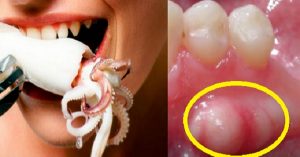A 63-year-old woman got a nasty shock when tucking into a seafood dinner.
According to Sophie Roberts of the Daily Star, the South Korean patient sought medical attention after she consumed raw squid.
 Doctors discovered that her mouth had been inseminated by the creature’s sperm, which had lodged into her tongue and gums.
Doctors discovered that her mouth had been inseminated by the creature’s sperm, which had lodged into her tongue and gums.
A Journal of Parasitology report noted that the woman immediately knew something was wrong with the dish.
Even though she spat out the mouthful, she was still affected by the uncooked seafood.
It explained: “As soon as she put a piece into her mouth, she felt like many ‘bugs’ were biting her oral mucosa.
“She experienced severe sharp pain and spat out the entire portion without swallowing.
“Despite that, she could feel many small squirming white bug-like organisms penetrating her.”
The squid sperm acted as it would during reproduction, leading to it implanting itself into the patient’s mouth.
After seeking medical attention, the woman was believed to make a full recovery.
While this case may seem very out of the ordinary, it isn’t the first time it has happened.
In 2011, a 21-year-old woman fell victim to a similar problem after consuming the sexual organs of a raw squid.
Pathology International reported that she also suffered issues with her gums and tongue.
The study warned: “Consumption of a squid with sperm bags and an active ejaculatory apparatus can lead to unintended ejection of the sperm bag and injury to the oral mucosa.”
This whole process is actually autonomous, meaning that the squid’s sex organ is prone to firing off without any conscious decision by the squid, according to a study in the journal Zoomorphology.








